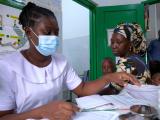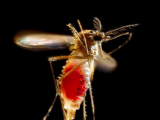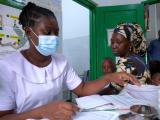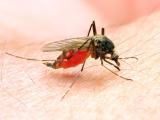Apr 7, 2008 (CIDRAP News) – The head of the World Health Organization (WHO) predicted today that climate change will increase disease outbreaks by a variety of mechanisms and threaten human health in other ways.
"The core concern is succinctly stated: climate change endangers health in fundamental ways," WHO Director-General Margaret Chan said in a statement timed to observe World Health Day.
"The warming of the planet will be gradual, but the effects of extreme weather events—more storms, floods, droughts, and heat waves—will be abrupt and acutely felt," Chan said. "Both trends can affect some of the most fundamental determinants of health: air, water, food, shelter, and freedom from disease."
In outlining major health consequences of global warming, Chan said droughts and floods will increase the burden of diarrheal disease, while changes in the ranges of disease-carrying insects will spread illnesses like dengue fever and malaria.
"Both scarcities of water, which is essential for hygiene, and excess water due to more frequent and torrential rainfall will increase the burden of diarrheal disease, which is spread through contaminated food and water," she said. She added that diarrheal diseases cause about 1.8 million deaths each year.
Further, Chan said, "Changing temperatures and patterns of rainfall are expected to alter the geographical distribution of insect vectors that spread infectious diseases. Of these diseases, malaria and dengue are of greatest public health concern."
In a news release accompanying Chan's statement, the WHO cited some examples of diseases affected by, or likely to be affected by, global warming:
- Major outbreaks of Rift Valley fever in Africa are usually associated with rains, which are expected to become more frequent as the climate changes.
- In the east African highlands, warmer temperatures in the last 30 years have created more favorable conditions for mosquito populations and therefore for the spread of malaria.
- Cholera epidemics in Bangladesh are closely linked to flooding and unsafe water.
Chan also said global warming threatens public health by reducing crop yields, leading to food shortages, and directly causing deaths and injuries through storms, floods, and heat waves.
She left no room for doubt about the role of humans in global warming: "The scientific evidence continues to mount. The climate is changing, the effects are already being felt, and human activities are a principal cause."
The reality of climate change is no longer in doubt, but there's still time to reduce the consequences for human health, Chan said.
The WHO and its partners—the United Nations Environment Programme, the UN Food and Agriculture Organization, and the UN World Meteorological Organization—are devising a research agenda to get better estimates of the scale and nature of the threat to health and to identify strategies for health protection, according to the news release.
"Better systems for surveillance and forecasting, and stronger basic health services, can offer health protection," the WHO said.
See also:
Statement by Margaret Chan
http://www.who.int/mediacentre/news/statements/2008/s05/en/index.html
Apr 7 WHO news release
http://www.who.int/mediacentre/news/releases/2008/pr11/en/index.html
More WHO information on climate change
http://www.who.int/globalchange/en/
Jan 10 CIDRAP News story "Federal officials warn of dengue threat to the US"

















